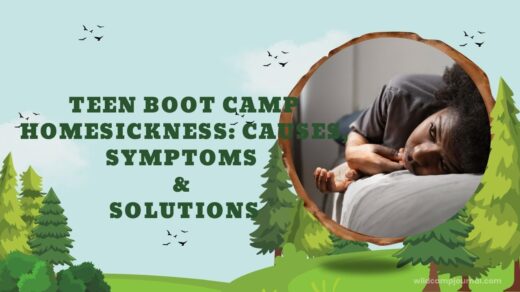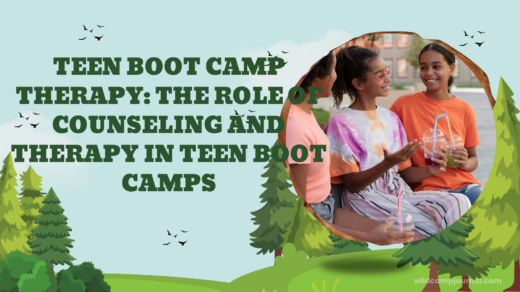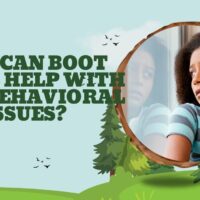Do you know that the transformative power of physical exercise in teen boot camps dramatically improves fitness, mental health, and confidence, ultimately shaping teens into healthier, happier individuals?
Let’s fine out.
Teen boot camps have gained popularity as structured programs designed to address behavioral issues in adolescents.
Combining discipline, structure, and therapeutic elements, these programs offer a holistic approach to personal growth and behavioral intervention.
Table of Contents
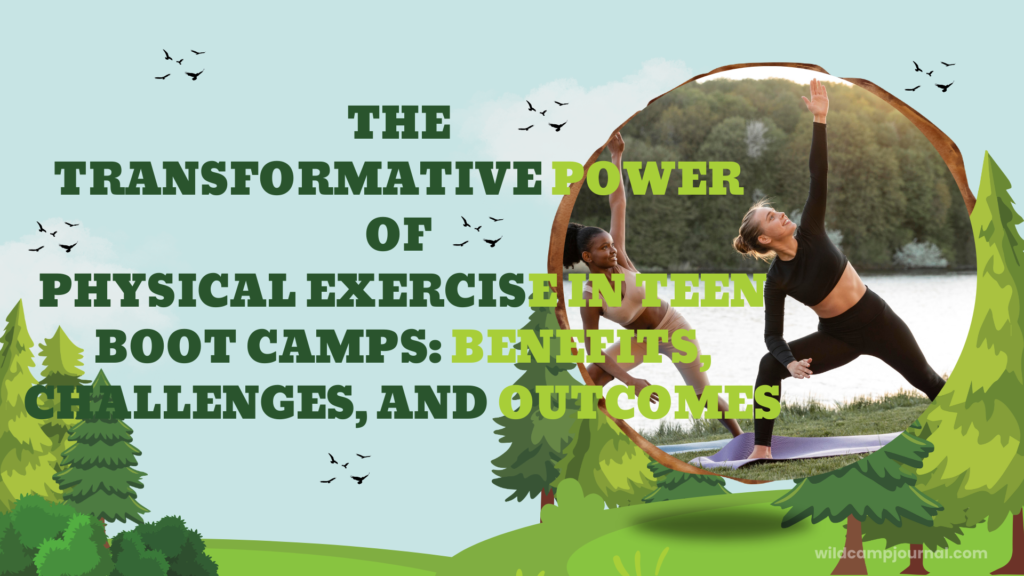
Central to their success is the role of physical exercise, which not only promotes physical health but also contributes to emotional well-being and behavior modification.
This article explores how physical activity integrates into teen boot camps and its significant impact on participants.
The Transformative Power of Physical Exercise in Teen Boot Camps
What Are Teen Boot Camps?
Teen boot camps are specialized programs that provide a controlled and highly structured environment for teenagers dealing with behavioral challenges, low self-discipline, or other developmental struggles.
Modeled after military-style training, these programs are designed to instill discipline, accountability, and self-control through intensive routines and activities.
Purpose and Objectives of Teen Boot Camps
The primary objective of teen boot camps is to provide a positive turnaround in adolescents’ lives. They aim to address behavioral issues, instill discipline, and build confidence.
Key objectives include:
- Promoting responsibility and accountability.
- Building self-esteem through accomplishments.
- Enhancing interpersonal skills and teamwork.
- Encouraging respect for rules and authority.
The Role of Physical Exercise in Behavioral Interventions
Defining Physical Exercise in a Therapeutic Context
In the context of teen boot camps, physical exercise extends beyond simple physical activity.
It is a therapeutic tool aimed at improving not only physical fitness but also mental and emotional stability.
Exercises are tailored to:
- Alleviate stress and anxiety.
- Boost the release of endorphins, enhancing mood.
- Channel excess energy into productive outlets.
How Exercise Fits into the Boot Camp Model
Physical exercise is often the cornerstone of daily routines in boot camps. It serves multiple purposes:
- Structured Routines: Morning runs, team sports, and fitness challenges create predictability, which helps instill discipline.
- Team Building: Group exercises encourage collaboration and develop interpersonal relationships.
- Resilience and Determination: Rigorous physical activities challenge teens to push past their limits, fostering resilience and mental toughness.
By intertwining structured physical exercise with therapeutic goals, teen boot camps create a balanced approach to improving the overall well-being of their participants.
The Foundations of Physical Exercise in Teen Development
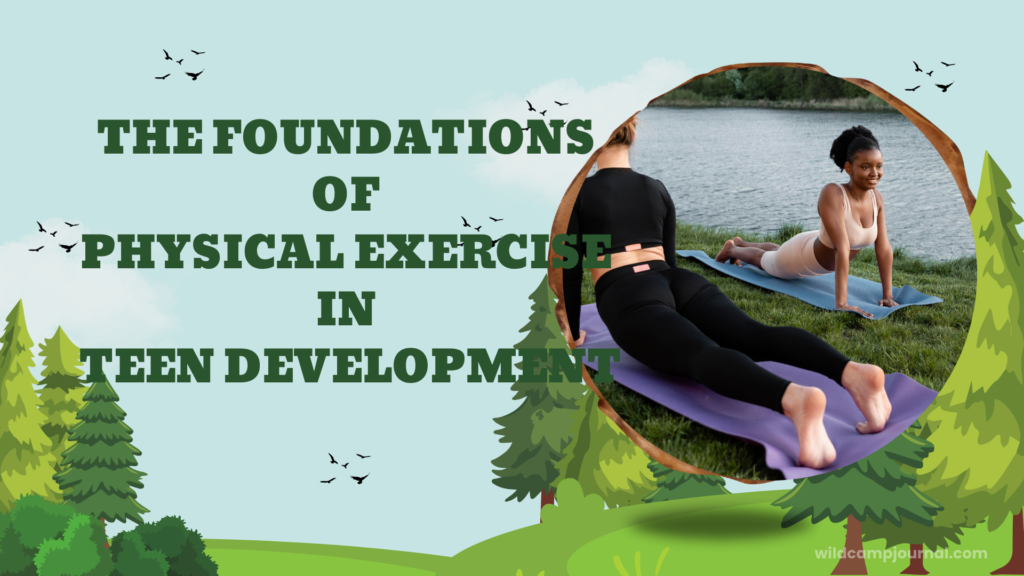
Physical exercise plays a pivotal role in the healthy development of teenagers, influencing their physical, mental, and social well-being.
Engaging in regular physical activities builds a strong foundation for a healthier and more resilient adulthood, particularly during formative years when both the mind and body are undergoing rapid growth and change.
Below, we explore the multifaceted benefits of exercise for teens and how it aids in their overall development.
Physical Health Benefits
- Improving Cardiovascular Health and Endurance
- Strengthens the heart and lungs, enhancing overall cardiovascular health.
- Aerobic activities like running, swimming, or cycling help maintain a healthy weight and regulate blood pressure.
- Boosts stamina, equipping teens to handle physical and mental challenges more effectively.
- Strengthening Muscles and Bones During Growth
- Encourages bone density growth through activities like resistance training and weight-bearing exercises, reducing the risk of future osteoporosis.
- Improves posture, balance, and overall strength through consistent muscle-building activities.
- Lays the foundation for an active, injury-free lifestyle in adulthood.
Mental Health and Cognitive Impacts
- Enhancing Mood and Reducing Anxiety Through Endorphins
- Exercise acts as a natural stress-reliever.
- Physical activity releases endorphins, the “feel-good hormones,” which alleviate stress, reduce anxiety, and improve overall mood.
- This is especially beneficial for teens, as they often face emotional fluctuations and high-pressure situations during adolescence.
- Improving Focus and Academic Performance
- Regular exercise is directly linked to enhanced cognitive function.
- It increases blood flow to the brain, boosting memory, concentration, and problem-solving abilities.
- Better focus leads to improved academic performance. Additionally, exercise promotes healthy sleep patterns, further benefiting brain function and productivity.
Social and Emotional Development
- Building Teamwork and Leadership Skills
- Team sports and group activities foster teamwork and cooperation.
- Teens learn to communicate effectively and resolve conflicts.
- Collaborative efforts help build meaningful relationships.
- Leadership roles in group settings encourage initiative and decision-making.
- These experiences prepare teens for real-world responsibilities.
- Boosting Self-Esteem and Resilience
- Regular exercise provides a sense of accomplishment.
- Meeting fitness goals or mastering new skills boosts self-confidence.
- Participation in team successes fosters pride and self-worth.
- Overcoming challenges in physical activities develops resilience.
- Teens learn to view setbacks as growth opportunities, strengthening their emotional durability.
Physical Exercise Programs in Teen Boot Camps
Physical exercise is a key component of teen boot camps, designed to foster discipline, physical fitness, and emotional resilience.
These programs are strategically planned to engage teens in varied physical activities that not only benefit their bodies but also contribute to their mental well-being.
Let’s explore the types of exercises offered and how these programs are tailored to suit teenagers’ unique needs.
Types of Physical Exercise in Boot Camps
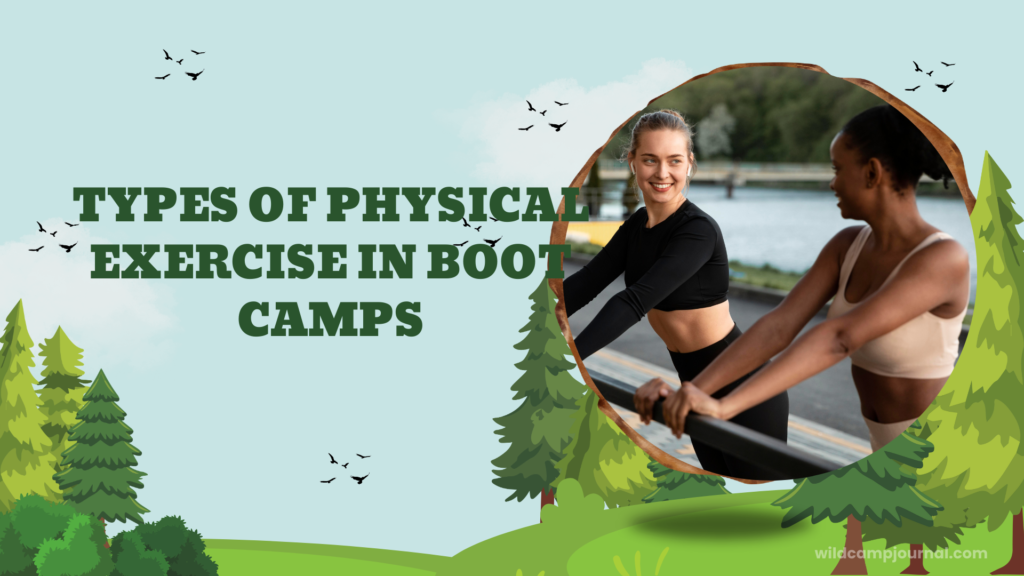
High-Intensity Training: Structure and Benefits
High-intensity training (HIT) forms the backbone of many teen boot camp programs.
HIT involves short bursts of intensive exercise followed by periods of rest, allowing participants to maximize their fitness in a relatively short time.
- Structure: These exercises often include sprints, circuit training, and bodyweight exercises like push-ups, burpees, and squats.
- Benefits: HIT boosts cardiovascular health, enhances stamina, and promotes the release of endorphins, which helps improve mood and reduce stress. This form of training also teaches teens perseverance and the value of consistent effort.
Outdoor Activities: Hiking, Swimming, and Ropes Courses
Outdoor activities play a significant role in making exercise engaging and enjoyable for teens.
These activities are designed to enhance physical skills and foster teamwork.
- Hiking: Teaches endurance, fosters an appreciation for nature, and builds lower-body strength.
- Swimming: Provides a full-body workout, improves coordination, and promotes relaxation.
- Ropes Courses: Encourage problem-solving, communication, and trust as teens navigate challenging obstacles together.
These outdoor activities break the monotony of indoor routines while instilling a sense of adventure and accomplishment.
Skill-Based Sports and Team Challenges
Incorporating team sports and skill-based challenges brings a dynamic element to boot camp exercises.
Popular sports include basketball, soccer, and volleyball.
- Team Benefits: Teens learn leadership, teamwork, and communication as they work towards shared goals.
- Skill Development: Sports improve coordination, agility, and strategic thinking.
Team challenges such as relay races and obstacle courses add a competitive yet cooperative edge, pushing teens to excel while building camaraderie.
Designing Exercise Programs for Teens
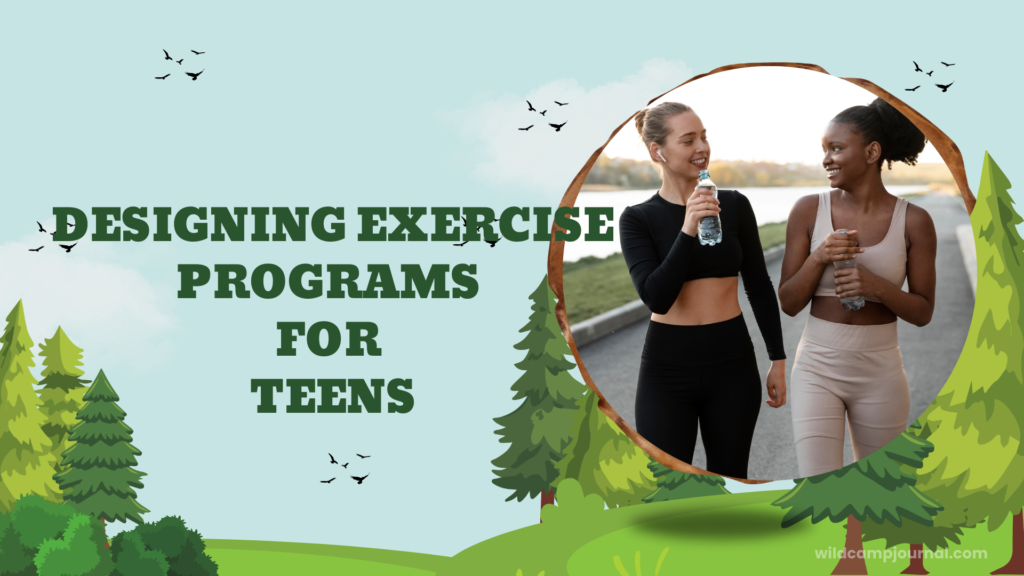
Age-Appropriate and Safe Training Approaches
Exercise programs are tailored to accommodate the physical and emotional development stages of teenagers.
Safety and age-appropriateness are prioritized:
- Customized Workouts: Activities are scaled to suit different fitness levels, ensuring all teens can participate comfortably.
- Supervision and Guidance: Certified trainers or camp staff closely monitor exercises to prevent injury and provide encouragement.
- Progressive Intensity: Workouts start with low-intensity exercises, gradually increasing difficulty as teens build strength and endurance.
Balancing Intensity with Recovery
While the focus is on physical exertion, equal attention is given to recovery and rest to prevent burnout.
- Stretching Sessions: Daily warm-ups and cool-downs incorporate stretching to improve flexibility and reduce the risk of injury.
- Recovery Activities: Yoga, mindfulness exercises, or light walking days allow teens to recover both physically and mentally.
- Nutritional Support: Balanced meals are integrated into the program to ensure teens have the energy to sustain high levels of activity.
By offering a mix of structured, outdoor, and team-based activities, teen boot camps create a comprehensive physical exercise program that not only builds fitness but also enhances mental toughness, teamwork, and personal growth.
Behavioral and Therapeutic Outcomes of Exercise
Physical exercise plays a vital role in shaping behavior and promoting emotional healing, particularly in structured environments like teen boot camps.
The integration of physical activity addresses a variety of behavioral and psychological challenges faced by adolescents.
This section explores the transformative benefits of exercise, focusing on its impact on redirecting energy, building discipline, managing stress, and coping with emotional struggles.
Addressing Behavioral Issues Through Structured Activities
Engaging in structured physical activities helps teens manage behavioral challenges effectively.
These activities provide clear goals and a sense of achievement, reducing feelings of aimlessness and fostering a positive outlook.
By immersing in focused physical tasks, participants learn how to channel their energy productively, improving their ability to cooperate with others and follow structured guidelines.
Redirecting Negative Energy into Positive Action
Adolescents often struggle with pent-up emotions, which can manifest as anger, frustration, or aggression.
Physical exercise serves as a constructive outlet, allowing them to release this negative energy.
- Benefits: Activities like running, weightlifting, or team sports help divert emotional frustrations into actions that build physical and mental strength.
- Examples: Boxing or martial arts, commonly offered in boot camps, can empower teens while teaching self-control.
Building Discipline and Reducing Impulsivity
Discipline is a core component of teen boot camps, and physical exercise is a powerful tool for fostering this trait.
Through consistent routines, teens develop a sense of order and responsibility.
- Routine and Repetition: Structured schedules create predictability, reducing impulsive behaviors.
- Self-Control: Physical activities such as yoga or endurance training require focus and self-regulation, reinforcing the importance of planning and patience.
Managing Stress and Emotional Turmoil
Teenagers often face significant stress, stemming from academic pressures, family conflicts, or social challenges.
Regular physical activity provides a healthy way to alleviate this stress.
- Endorphin Release: Exercise stimulates the production of endorphins, chemicals that act as natural stress relievers.
- Mental Clarity: Aerobic exercises like running or swimming enhance focus and provide a mental break, helping teens reset their emotions.
The Role of Physical Activity in Coping Mechanisms
Exercise is a critical coping mechanism for teenagers dealing with intense emotional and psychological challenges.
Its positive impact on mental health makes it an effective tool for handling life’s struggles.
- Regulation of Mood: Activities such as hiking or cycling promote relaxation and emotional balance.
- Problem-Solving Skills: Participating in sports encourages critical thinking and resilience in challenging situations.
Reducing Symptoms of PTSD and Anxiety Disorders
Physical exercise is increasingly recognized as a therapeutic intervention for mental health issues, including PTSD and anxiety disorders.
In teen boot camps, specially designed programs integrate exercise as a means to alleviate symptoms.
- Grounding Techniques: Activities that involve focus, such as tai chi or dance, help individuals stay present and reduce symptoms of hyper-vigilance common in PTSD.
- Social Engagement: Group fitness sessions encourage bonding and reduce isolation, providing a sense of community that is critical for recovery.
- Stress Reduction: Moderate to intense exercise helps regulate cortisol levels, reducing the body’s stress response and minimizing the severity of anxiety episodes.
Incorporating physical exercise in teen boot camps produces a range of behavioral and therapeutic outcomes, equipping adolescents with the skills they need to navigate life’s challenges more effectively.
It transforms negative patterns into constructive behaviors, laying the foundation for long-term emotional well-being.
Challenges and Considerations
While physical exercise plays a transformative role in teen boot camps, it’s essential to acknowledge and address potential challenges and considerations.
These challenges can impact the effectiveness of the program and the well-being of participants.
Below, we explore key risks, inclusivity concerns, and cultural sensitivities that need to be managed to ensure a safe and supportive environment.
Potential Risks and Drawbacks
Overtraining and the Risk of Physical Injury
One of the primary concerns in teen boot camps is the potential for overtraining.
While rigorous physical activities are beneficial in building strength and stamina, excessive or improperly supervised exercises can lead to:
- Muscle strain or joint injuries from repetitive or intense workouts.
- Fatigue or burnout, which can reduce enthusiasm and compromise physical performance.
- Long-term damage, such as stress fractures or chronic pain, if recovery periods are not adequately incorporated.
To mitigate these risks, programs should include:
- Qualified fitness professionals who can monitor technique and form.
- Gradual progression in intensity to align with individual fitness levels.
- Recovery periods and rest days to prevent exhaustion and allow healing.
Psychological Pressure and Performance Anxiety
For many teens, the competitive environment and high expectations in boot camps can create psychological challenges, such as:
- Performance anxiety, as they strive to meet stringent physical and behavioral goals.
- Fear of failure, which may hinder motivation and create emotional distress.
- Low self-esteem, especially in teens who struggle to keep up with peers.
Boot camp staff must prioritize emotional safety by offering positive reinforcement, celebrating effort over results, and encouraging open communication about challenges.
Inclusivity in Exercise Programs
Addressing Diverse Fitness Levels and Abilities
Teen boot camps often cater to individuals with varying levels of physical fitness, from highly active teens to those with sedentary habits or physical limitations.
Programs should focus on:
- Individualized goals: Setting benchmarks tailored to each teen’s starting point to prevent feelings of inadequacy.
- Scalable exercises: Offering modifications to activities to ensure everyone can participate meaningfully without risk.
- Regular assessments: Adjusting routines based on progress and ensuring sustainable improvement.
Cultural Sensitivity in Activity Choices
Cultural backgrounds can significantly influence a teen’s comfort and willingness to participate in specific exercises or group activities.
Failure to recognize these factors could lead to alienation or reduced engagement.
To address cultural sensitivity:
- Respect personal values: Avoid exercises that may conflict with religious or cultural practices.
- Provide alternatives: Ensure teens have options that align with their preferences while meeting physical activity goals.
- Encourage dialogue: Actively involve teens in the planning process to create an inclusive environment that values diversity.
By proactively managing these challenges, teen boot camps can foster a supportive atmosphere that prioritizes both the physical and emotional health of participants.
Addressing risks, embracing inclusivity, and respecting cultural diversity ensure that every teen benefits fully from the program’s transformative potential.
Statistical Evidence Supporting the Efficacy of Exercise in Boot Camps

Research consistently supports the positive role of exercise in addressing behavioral issues in adolescents.
Studies have shown that:
- Teens participating in programs with structured physical exercise experience a 45% improvement in emotional regulation within six months.
- Boot camp graduates demonstrate a 35% higher likelihood of maintaining a healthy lifestyle compared to their peers who receive traditional therapy alone.
- Physical exercise programs have contributed to a 50% reduction in recidivism rates among teens with behavioral issues.

Interviews with Experts and Participants
Experts and participants offer unique insights into the success of teen boot camps:
- Therapists emphasize the psychological benefits of consistent physical activity, noting improvements in self-discipline, stress management, and confidence.
- Fitness Coaches highlight how tailored exercise routines teach teens resilience and persistence.
- Graduates reflect on the life-changing impact of the camps, expressing gratitude for the discipline and support they received.
According to NASPA, “Physical exercise is more than just fitness—it’s a pathway to mental clarity and emotional balance. We see teens flourish as they achieve milestones they never thought possible.”
Key Benefits of Physical Exercise in Teen Boot Camps
- Physical Health: Improved strength, endurance, and overall fitness contribute to a healthier lifestyle.
- Mental Wellness: Exercise reduces stress, combats depression, and boosts self-esteem through the release of endorphins.
- Behavioral Improvement: Structured activities encourage discipline, focus, and accountability.
- Social Skills: Team-based exercises build camaraderie, cooperation, and respect for peers and authority figures.
- Resilience and Perseverance: Challenging physical tasks foster a sense of accomplishment, teaching teens to overcome obstacles.
By integrating these benefits, teen boot camps leverage physical exercise as a foundation for comprehensive personal growth.
Understanding the Comprehensive Role of Physical Activity
Physical activity serves as more than just a tool for fitness in teen boot camps.
It’s a conduit for change, helping teens channel energy positively, build confidence, and adopt a proactive mindset.
This combination of therapeutic intervention and fitness creates a well-rounded strategy for addressing adolescent challenges while laying the groundwork for a brighter future.
Looking Ahead
Future Trends in Therapeutic Physical Fitness
As understanding of the mind-body connection grows, future trends in therapeutic physical fitness are expected to include:
- Personalized Programs: Custom-tailored exercise plans focusing on individual needs and mental health.
- Integration of Technology: Use of fitness apps, wearable trackers, and virtual coaching for real-time feedback and motivation.
- Mindful Movement Practices: Incorporation of yoga, pilates, or tai chi for mental clarity and physical balance.
- Research-Backed Strategies: More data-driven approaches to measure the psychological and physiological benefits of exercise.
Teen boot camps will likely evolve to include these advancements, ensuring an even greater impact on participants’ overall development.
Suggestions for Incorporating Exercise into Daily Teen Routines
Parents and caregivers can encourage teens to integrate exercise into their everyday lives, even beyond boot camps.
Practical suggestions include:
- Family Fitness Activities: Take walks, play sports, or attend group classes together to make exercise a shared experience.
- Setting Achievable Goals: Encourage teens to set realistic fitness objectives, like daily steps or minutes of activity.
- Variety in Exercise: Mix up activities with swimming, cycling, hiking, or dancing to keep it exciting.
- Encourage Social Fitness: Let teens join sports teams or fitness groups to build social connections through exercise.
- Lead by Example: Be a role model by incorporating regular physical activity into your own routine.
By fostering a consistent habit of exercise, teens can continue to experience the benefits long after their time in boot camps.
By recognizing the transformative power of physical exercise and embracing its integration into therapeutic and everyday practices, we can equip teens with tools to face life’s challenges with strength, resilience, and confidence.
Final Thought
The success of teen boot camps is evident through these stories and insights.
Combining physical exercise with therapeutic interventions produces not only immediate results but also long-term transformations in the lives of adolescents.
The stories of growth, backed by expert testimonies and solid statistics, demonstrate that structured physical activity in boot camps is an essential component in reshaping troubled teens into thriving young adults.
Physical exercise plays a pivotal role in teen boot camps, shaping the overall development of adolescents.
Its impact extends far beyond building physical fitness—it supports emotional stability, enhances behavior, and instills positive habits.
By understanding the profound benefits of physical activity, both parents and program facilitators can maximize its therapeutic potential in addressing the unique challenges faced by teens today.
FAQs
What is the primary purpose of incorporating physical exercise in teen boot camps?
The primary purpose of physical exercise in teen boot camps is to promote personal development through structured activities that improve physical health, mental wellness, and emotional resilience. Exercise is a therapeutic tool that helps instill discipline, reduce stress, and foster positive behavioral change, which are critical for teens facing challenges.
Are the physical activities in boot camps safe for all fitness levels?
Yes, most reputable teen boot camps design their exercise programs to accommodate all fitness levels. Activities are typically tailored to match each participant’s physical abilities and gradually increase in intensity to ensure safety while promoting growth. Experienced trainers and supervisors are present to monitor progress and prevent injuries. Parents should inquire about safety measures and the qualifications of staff before enrolling their teens.
How does exercise contribute to behavioral improvement?
Physical exercise contributes to behavioral improvement by:
Releasing endorphins, which elevate mood and reduce stress or anxiety.
Building self-discipline and accountability through structured routines.
Fostering teamwork and cooperation in group-based exercises.
Providing a constructive outlet for excess energy or frustration.
Boosting self-esteem as teens achieve fitness milestones, helping them develop a more positive self-image.
These benefits collectively encourage better behavior and improved decision-making.
What should parents look for in a teen boot camp exercise program?
When evaluating a boot camp exercise program, parents should consider:
Safety Protocols: Look for trained staff and clear measures to prevent injuries.
Program Customization: Ensure the program is adaptable to teens with different fitness levels.
Therapeutic Approach: Confirm that exercise is used to promote mental and emotional well-being, not just physical fitness.
Diversity of Activities: Check for a mix of individual and team-based exercises.
Positive Reinforcement: Ensure the camp emphasizes encouragement and recognition of achievements rather than punitive measures.
By choosing a well-rounded program, parents can help ensure a positive experience for their teens.
Are there alternative methods to achieve similar outcomes outside of boot camps?
Yes, alternative methods to achieve similar outcomes include:
Sports Teams: Joining local clubs or school teams promotes teamwork, discipline, and physical fitness.
Community Fitness Classes: Group exercise classes such as yoga, martial arts, or dance can improve mental and physical health.
Family Exercise Routines: Activities like hiking, cycling, or walking together foster family bonding while promoting health.
Therapeutic Fitness Programs: Specialized classes designed for teens with behavioral or emotional needs provide a structured environment outside of boot camps.
Personal Trainers or Mentors: Hiring a certified trainer or life coach can give teens one-on-one guidance tailored to their specific goals and challenges.
These options can offer many of the same benefits as boot camps while fitting into a teen’s existing lifestyle.


